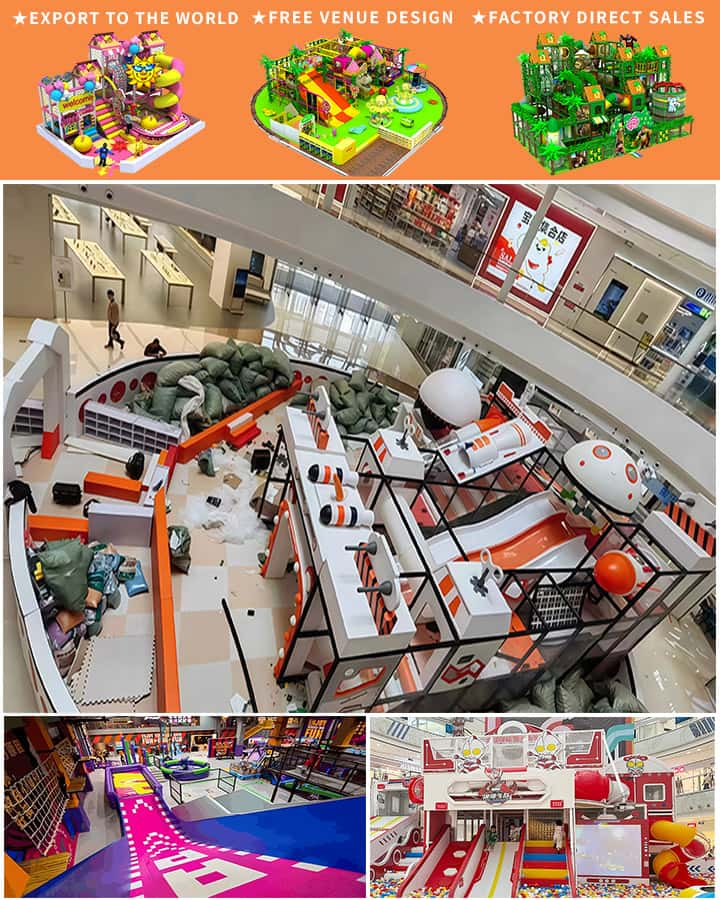In the bustling world of modern parenting, finding safe and engaging environments for children to play and learn is paramount. One such avenue that has gained significant traction in recent years is soft play equipment. This specialized commercial sector focuses on creating spaces where children can develop essential skills through fun and interactive play. In this article, we delve into the importance of soft play equipment, its benefits, and how businesses are capitalizing on this growing trend.
The Significance of Soft Play Equipment
Soft play equipment encompasses a wide range of padded and cushioned structures designed specifically for the use by young children. These include climbing frames, tunnels, slides, ball pits, and sensory play areas. Unlike traditional playgrounds with hard surfaces, soft play zones prioritize safety, ensuring that even the most adventurous child can explore without the risk of injury from falls or collisions.
The significance of such equipment extends beyond mere safety. It provides an environment that fosters physical activity, social interaction, and cognitive development. By incorporating elements that challenge motor skills and encourage imaginative play, soft play equipment helps children build strength, coordination, balance, and confidence.
Benefits for Children’s Development
Physical Development
Soft play equipment engages various muscle groups, enhancing physical fitness and coordination. Climbing walls, for instance, improve grip strength and upper body endurance while balancing beams aid in developing core stability. These activities promote gross motor skills, laying the foundation for more complex physical tasks as children grow.
Social Skills

Soft play centers serve as melting pots for social interaction. Children learn to share, take turns, and collaborate during group activities, which are crucial social skills. Interaction with peers also fosters empathy, communication, and conflict resolution abilities. These early experiences form the basis for strong interpersonal relationships in adulthood.
Cognitive Growth
Play-based learning is widely recognized as a potent tool for cognitive development. Soft play areas stimulate creativity, problem-solving, and critical thinking. For example, navigating obstacle courses requires planning and decision-making, while pretend play scenarios encourage role-playing and storytelling, nurturing language skills and imagination.
Emotional Wellbeing
Engaging in fun and low-pressure activities within a secure environment contributes positively to a child’s emotional health. Soft play sessions provide an outlet for energy, reducing stress and promoting relaxation. Moreover, the sense of accomplishment derived from completing challenges boosts self-esteem and resilience.
Commercial Opportunities in Soft Play Equipment
Recognizing the multifaceted benefits of soft play, entrepreneurs have seized upon the opportunity to create dedicated spaces catering to this demand. Soft play cafes, indoor playgrounds, and family entertainment centers have become popular destinations for families seeking safe and enriching experiences for their children.
Business Models and Revenue Streams
- Entrance Fees: Many establishments charge an hourly or daily rate for access to their facilities, ensuring a steady flow of income while providing unlimited playtime for visitors.
- Membership Packages: Offering discounted rates for frequent users encourages repeat visits, fostering customer loyalty and predictable revenue streams.
- Party Hosting: Soft play venues often host birthday parties and private events, bundling food, decorations, and exclusive playtime, generating additional income.
- Merchandising: Selling branded toys, apparel, and accessories related to the soft play experience creates another avenue for profit while enhancing customer engagement.
- Online Presence: Establishing a website and leveraging social media platforms can attract a broader audience, facilitate online bookings, and offer promotional deals.
Considerations for Success
To thrive in the competitive landscape of soft play equipment, businesses must prioritize several key factors:
- Safety First: Adherence to strict safety standards and regular maintenance of equipment are non-negotiable. Creating a secure environment builds trust with parents and ensures the wellbeing of young patrons.
- Diversity of Play Options: Offering a variety of age-appropriate activities keeps children engaged and caters to different interests and abilities.
- Cleanliness: Maintaining high levels of hygiene prevents the spread of germs and illnesses, making the facility appealing to health-conscious families.
- Customer Service: Warm and attentive staff enhance the overall experience, turning first-time visitors into loyal customers.
Conclusion
Soft play equipment represents a thriving commercial sector that marries business innovation with the fundamental needs of child development. By providing safe, stimulating environments that promote physical, social, cognitive, and emotional growth, soft play centers have carved out a niche market that continues to expand. As societal emphasis on early childhood development intensifies, investing in quality soft play equipment stands as a promising venture for those looking to make a positive impact while tapping into a lucrative industry.




